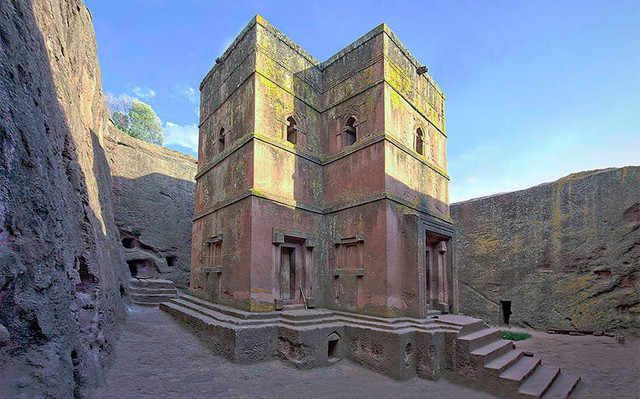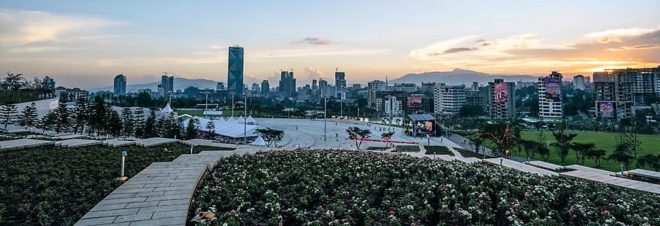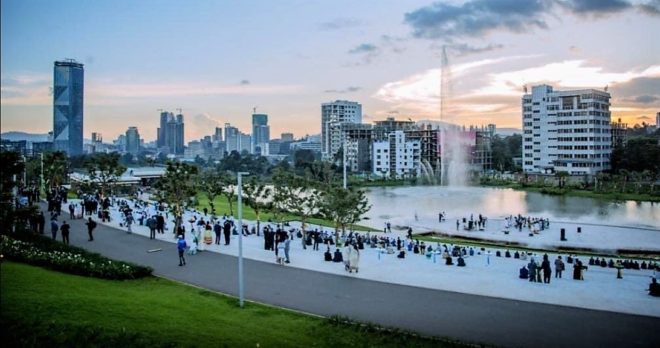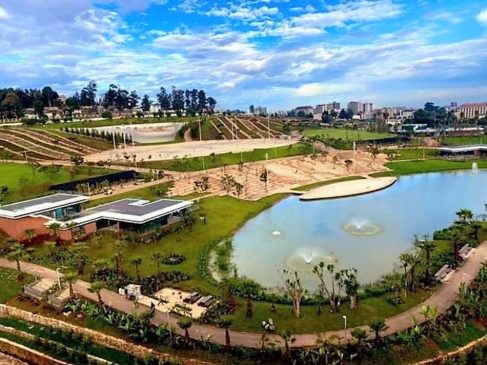Exploring the Monolithic Stone Lalibela Churches

Lalibela is a town located in the heart of the Ethiopian plateau, about 700 kilometres north of Addis Ababa. The magnificent rock hewn Lalibela churches have turned this mountain town into a place of pride and pilgrimage for worshipers of the Ethiopian Orthodox Church, attracting 80,000 to 100,000 visitors every year.
Lalibela churches have the most impressive architectural designs in Ethiopia and they are included in the UNESCO list of World Heritage sites. These churches are a group of eleven monolithic and semi-monolithic structures that were built by carving a single huge block of rock, without adding any external building materials like bricks or concrete about 800 years ago.
The medieval structures were commissioned by King Lalibela, who set out to construct in the 12th century a ‘New Jerusalem’, after the Muslim conquests halted Christian pilgrimages to the holy Land. These Lalibela churches include the Church of the Redeemer, of Saint Mary, of Mount Sinai, of Golgotha, of the House of the Cross, of the House of the Virgins, of Saint Gabriel, of Abba Matta, of Saint Mercurius, and of Immanuel.
These famous churches were built in a variety of styles. Some were chiseled into the face of the rock, others stand as isolated blocks, like the iconic church of Saint George, constructed in the shape of the cross.
Explore the maze of passageways and tunnels, intricately carved reliefs, and fabulous icon paintings on the walls. A guide with teach you about the church’s history as well as take care of your shoes since you have to remove them as you walk around the churches.
Lalibela is one of the major holy cities in Ethiopia after Aksum (aka Axum). The churches in Lalibela still serve as important places of worship for members of the Ethiopian Orthodox Church. Within the churches’ compound, you’ll find worshippers leaning against the structures, kissing the age-old rock walls, reading religious texts or praying quietly.
Millions of Christians around the world visit Lalibela churches annually. They explore the spectacular structures and hold prayer sessions there.
Source: Jovago.com



